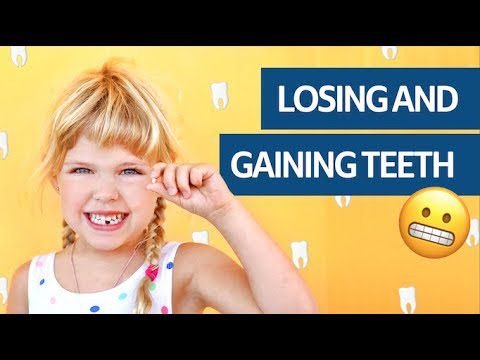Understanding the Age of Tooth Loss in Children

In the exciting age of losing teeth, children experience a pivotal moment in their growth and development. As they eagerly await visits from the tooth fairy, parents navigate this milestone with a mix of nostalgia and pride. Join us as we explore the significance of this rite of passage and offer tips for supporting your child through this natural process.
At what age do most people lose their teeth?
Did you know that by the age of 50, the average American has lost 12 teeth, including wisdom teeth? Surprisingly, by the time they reach 44 years old, 69% of adults have already lost at least one tooth. As people age, the likelihood of losing all their teeth increases, with 26% of individuals having lost all their teeth by the age of 74. Take care of your oral health to preserve your teeth for as long as possible!
It's never too early to start taking care of your teeth to prevent tooth loss as you age. With the average 21 year old American starting their adult life with 28 teeth, it's important to prioritize oral hygiene and regular dental check-ups. By maintaining good oral health habits, you can decrease the chances of losing teeth as you get older. Remember, a healthy smile is a lifelong investment in your overall well-being.
Is age 5 too early to lose teeth?
Losing a tooth at age 5 is not too early. In fact, it is quite common for children to lose their first tooth around this age. While some may lose their first tooth earlier or later, the average age for this milestone is typically between 5 and 6 years old. So, if your child loses a tooth at age 5, there is no need to worry as it is perfectly normal.
It's important to remember that every child is different and will experience milestones like losing teeth at their own pace. If your child loses a tooth at age 5, it's simply a natural part of their development. Just make sure to help them take care of their new adult teeth coming in by practicing good oral hygiene habits.
Is it typical for a 10-year-old to experience tooth loss?
Yes, it is completely normal for a 10 year old to lose teeth. Children typically start losing their baby teeth around the age of 6, with the process continuing until around 12 years old. The first teeth to go are usually the bottom and top incisors, followed by the canines and molars. It's important to encourage good oral hygiene and regular dental check-ups during this time to ensure a smooth transition from baby teeth to permanent ones.
It is common for 10 year olds to lose teeth as part of the natural process of transitioning from baby teeth to permanent teeth. The sequence of tooth loss typically follows a pattern, with the front teeth falling out first and the molars being the last to go. It's important for parents to support their child's dental health during this time, ensuring they practice good oral hygiene and visit the dentist regularly to monitor the transition and ensure the proper development of their permanent teeth.
Exploring the Causes and Prevention of Early Tooth Loss in Kids
Early tooth loss in children can be caused by a variety of factors, including poor oral hygiene, genetics, and diet. Establishing a consistent routine of brushing and flossing, along with regular dental check-ups, can help prevent tooth decay and ultimately reduce the risk of early tooth loss. Encouraging a balanced diet rich in fruits and vegetables, while limiting sugary snacks and drinks, can also play a crucial role in maintaining healthy teeth and gums. By educating both children and parents on the importance of good oral hygiene practices, we can work towards preventing early tooth loss and promoting lifelong dental health.
Unraveling the Mystery of Tooth Loss in Young Children
Tooth loss in young children can be a puzzling and concerning issue for parents and caregivers. While it is a natural part of a child's development, understanding the causes and potential solutions can help alleviate worries and promote healthy dental habits. Factors such as poor oral hygiene, genetics, and accidents can contribute to early tooth loss, making it important to establish regular dental care routines and encourage a balanced diet to support strong teeth. By unraveling the mystery of tooth loss in young children, we can empower families to take proactive steps in ensuring the long-term oral health of their little ones.
In conclusion, the age at which children lose their teeth can vary widely, but the general timeline typically follows a pattern. Understanding the process of losing baby teeth can help parents and children prepare for this natural part of growing up. By knowing what to expect, parents can provide the necessary support and reassurance, while children can feel confident and informed as they experience this developmental milestone. Whether it's the excitement of a first loose tooth or the anticipation of a visit from the tooth fairy, the age of losing teeth is a significant and memorable experience for children and families alike.